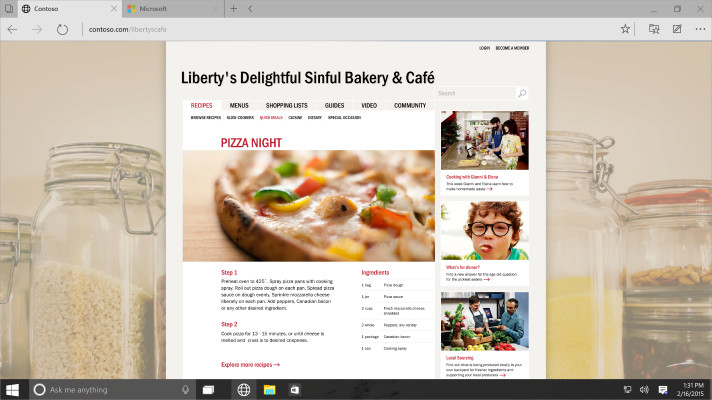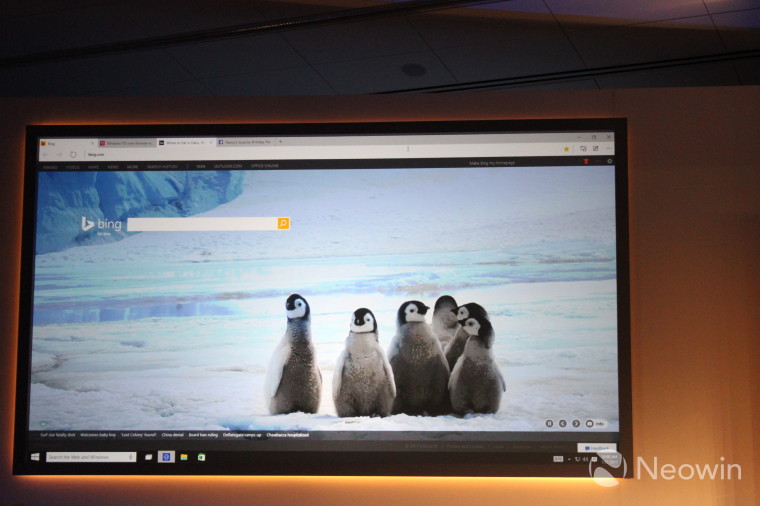
There is no question that Internet Explorer has some baggage with its name, and while we still don't know what the new Spartan browser will be called upon its release, we are starting to learn more about how the new browser operates.
Back in December, we broke the news that Spartan would have a new engine that would help separate itself from its past and open the door for a modern browsing experience. This was accomplished by forking Trident, which Microsoft has now confirmed, and because of that fork, the team is forging ahead with a modern browser that masks itself to look like Chrome under the hood.
Jacob Rossi, senior engineer at Microsoft's web platform team, has chosen to share the inside story of the new rendering engine powering Spartan, and more bits about whether it is going to replace Internet Explorer in the future.
One thing that many people have asked is when will everyone be able to play with the new browser, and Rossi said that "it will be a matter of few months until users and developers alike will be able to try Spartan for themselves", but there are some things about it that can be shared right now.
With Spartan, Microsoft is trying to distance itself from Internet Explorer and the "bugs, hacks and dirty workarounds" that developers hated in older versions. That's why the new browser will also come with a new user agent string, which masks itself as Chrome, enabling websites to send modern content to the new engine; Microsoft forked Trident to create the new engine.
After forking the engine, Microsoft brought out the red pen and started deleting code – lots of it. Legacy code relating to documented modes, subsystem for emulating IE8 layout quirks, VBScript, X-UA-Compatible and more were all banished to the browser graveyard. This left Microsoft with a nimble, modern web platform designed for inheritability and standards.
The January Technical Preview already has the new engine, EdgeHTML.dll, integrated into it. Edge is built "using IE11’s standards support as a baseline", but its code base "looks little like Trident anymore", because a lot of legacy IE code has been removed during the development process.
Spartan will also be powered by the fast Chakra JavaScript engine, and Microsoft engineers are currently working on "over 40 new web standards", to make sure the new browser will be fit for today's modern web.
For the enterprise, classic Internet Explorer is still available for legacy applications that require the old browser; this will help with the adoption of Windows 10 in the corporate space.
Microsoft believes that Spartan will be the browser most users of Windows 10 will adopt as it has already proven to be faster and more agile than what the company currently offers with Internet Explorer.
Because Spartan deviates drastically from the past, it offers a new chance for Microsoft to take back the web from Chrome and Firefox which, if they succeed, will drive more searches towards Bing (as it will be the default search engine) and deliver more revenue for Microsoft. It's a long path to increasing the revenue for Microsoft but it's a path that they need to forge as Windows 10 will be free for millions of users.
Source: Jacob Rossi
Brad Sams contributed to this report.


















66 Comments - Add comment